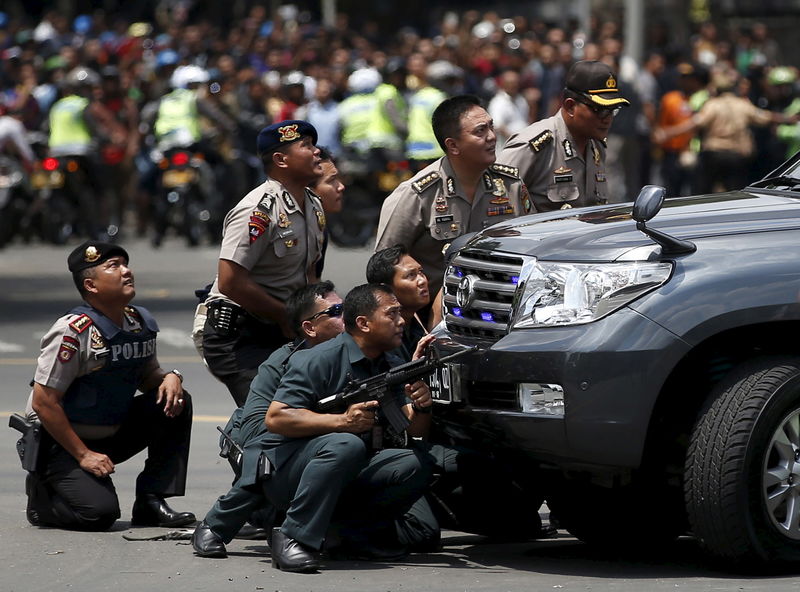* Students protest over revised laws on graft, penal code
* President had delayed vote on controversial penal code
* Stock market falls 1% on political tensions -analyst (Adds drop in stock market, quote by finance minister)
By Agustinus Beo Da Costa
JAKARTA, Sept 24 (Reuters) - Indonesian police fired water cannon and tear gas to break up protests on Tuesday, as tens of thousands of students gathered in cities nationwide over issues that included a new criminal code that penalises adultery and revised laws on corruption.
President Joko Widodo on Friday ordered a delay in parliament's vote on the new criminal code, which would replace a Dutch colonial-era set of laws, saying a new parliament should deliberate on the bill next month. revisions to the code also include penalties for sex outside marriage, insulting the president's dignity, a four-year jail term for abortions in the absence of a medical emergency or rape, and a prison term for black magic.
Though the vote was not included in Tuesday's plenary session in parliament, some lawmakers have said they would try to come up with a new draft to bring it to a vote before their current term ends at the end of this month.
Students, often wearing colourful jackets from their alma maters, gathered in cities across the country.
One banner held by a woman in a photo posted on social media read: "My crotch does not belong to the government".
Thousands gathered in the front and back entrances to Jakarta's parliament building, demanding to meet with parliament speaker Bambang Soesatyo.
Soesatyo held a news conference inside the building urging calm, but refused to answer questions from reporters on whether the vote would be delayed until new parliament takes office, repeating the vote could happen in the current term.
Police then fired water cannon and tear gas in an attempt to disperse the crowd.
Indonesia's benchmark stock index .JKSE dropped more than 1% on Tuesday, amid worries over domestic political tensions, said Fakhrul Fulvian, an economist with Trimegah Sekuritas.
Finance Minister Sri Mulyani told reporters she hoped "the things that triggered (the demonstrations) can be discussed through the available political process so there won't be a wider impact on sentiment."
THOUSANDS OF POLICE ON STANDBY
On the main street through the capital Jakarta, hundreds of others were marching down towards parliament after protesting in front of the presidential palace, blocking traffic.
"We're going to parliament to oppose the new law for the anti-corruption agency that are not pro-people but are pro-corruptors," Fuad Wahyudin, 21-year-old student from an Islamic university in West Java, told Reuters.
"The criminal code is the same, it doesn't side with the people," said Wahyudin.
Though the president had ordered a delay in the criminal code, Wahyudin said he wanted to make sure parliament does not pass the bill into law until they change it to reflect demand from protesters.
President Widodo told Indonesians this month he would not compromise in the fight against graft, amid concerns over the officer picked to head the anti-corruption agency and proposed changes curbing its right to wiretap suspects without a warrant. also fired tear gas to disperse thousands of protesters in Bandung, West Java, who hurled rocks at officers near a local parliament building.
Students had stayed in front of Jakarta's parliament until nearly midnight on Monday, breaking part of the fence and blocking a toll road.
Media reports said more than 5,000 police personnel have been deployed to maintain security in Jakarta.
